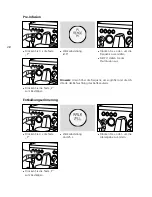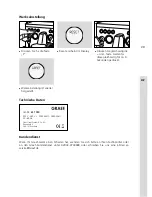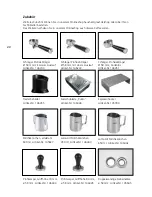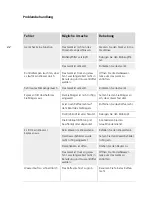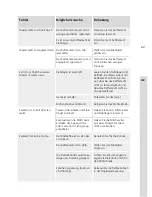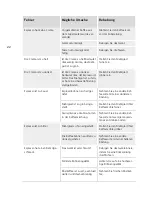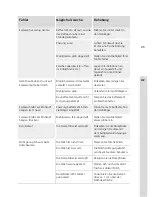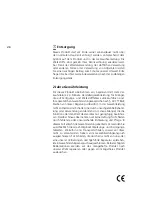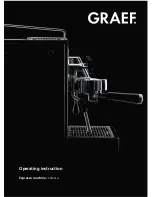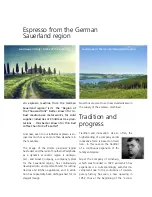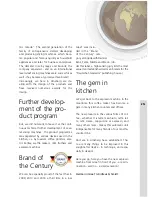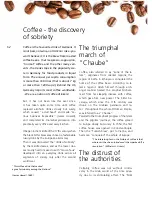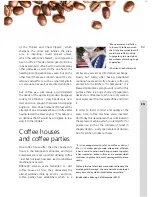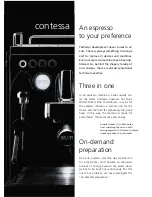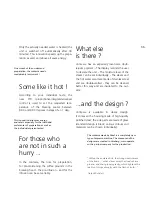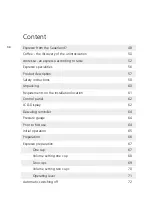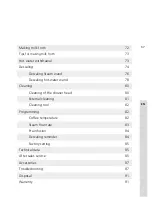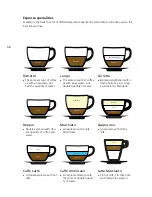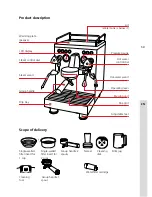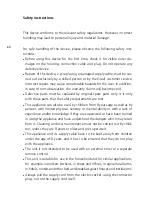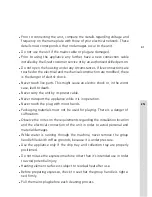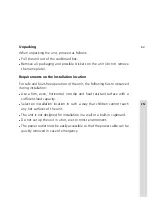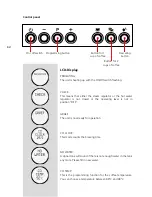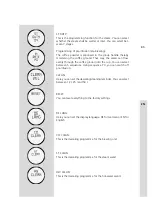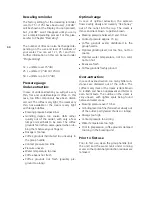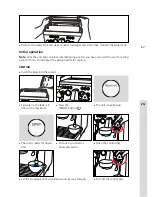
52
Coffee - the discovery
of sobriety
Coffee is the favourite drink of Germans. It
is not beer, not wine, not milk nor coke - you
won’t believe it, it is the brew from roasted
coffee beans - that is espresso, cappuccino,
“normal” coffee and the other many vari-
ants - that ranks tops in the popularity sca-
le in Germany for food products in liquid
form. The annual per capita consumption
is more than 160 litres (that is about 7 kg
or more than 1,200 cups!). Behind the US,
Germany imports most coffee worldwide.
- We are a nation of coffee drinkers!
But, it has not been like this ever since.
It has taken quite some time until coffee
replaced alcoholic drinks slowly but surely,
which caused “a dull head” and made “se-
rious business impossible” (James Howell),
and completed its triumphal procession into
practically every office and every kitchen.
It began in the middle of the 17th century when
the black bitter brew was chosen a fashionable
luxury drink by the European aristocracy.
Then it was discovered the “drink of sobriety”
by the middle classes, and as the lower clas-
ses mostly had to make do with “mocca faux”
developed into an everyday drink across all
segments of society only after the second
world war.
The triumphal
march of
“Chaube”
Coffee, also referred to as “wine of the Is-
lam”, originates from oriental regions; the
region of Kaffa in Ethiopia is considered the
home of the coffee bean. According to Is-
lamic legend, Allah himself through arch-
angel Gabriel healed the prophet Moham-
med from his sleeping disease with coffee,
which gave him new power. The bitter be-
verage, which since the 11th century was
drunk on the Arabian peninsula and la-
ter throughout the whole Ottoman Empire,
was referred to as “Chaona”.
Parallel to the triumphant progress of the Islam
and the pilgrims’ journeys, the coffee spread
to Europe slowly but surely: In 1554, the first
coffee house was opened in Constantinople.
Then the “Turkish brew” got to Vienna, and
had soon “conquered” the whole of Europe.
The distrust of
the authorities
Certainly, coffee was not without contro-
versy in the Arab world of the time alrea-
dy due to its stimulating effect. The “Milk
“This coffee drink that caused
a greater sobriety among the Nations.”
(James Howell, 1660)
“The interesting fact in the history of coffee is that
wherever it has been introduced it has sparked off a
revolution.” (Wilhelm A. Uckers)
Summary of Contents for contessa
Page 47: ...47 DE ...
Page 48: ......
Page 49: ...Operating instruction Espresso machine contessa ...

